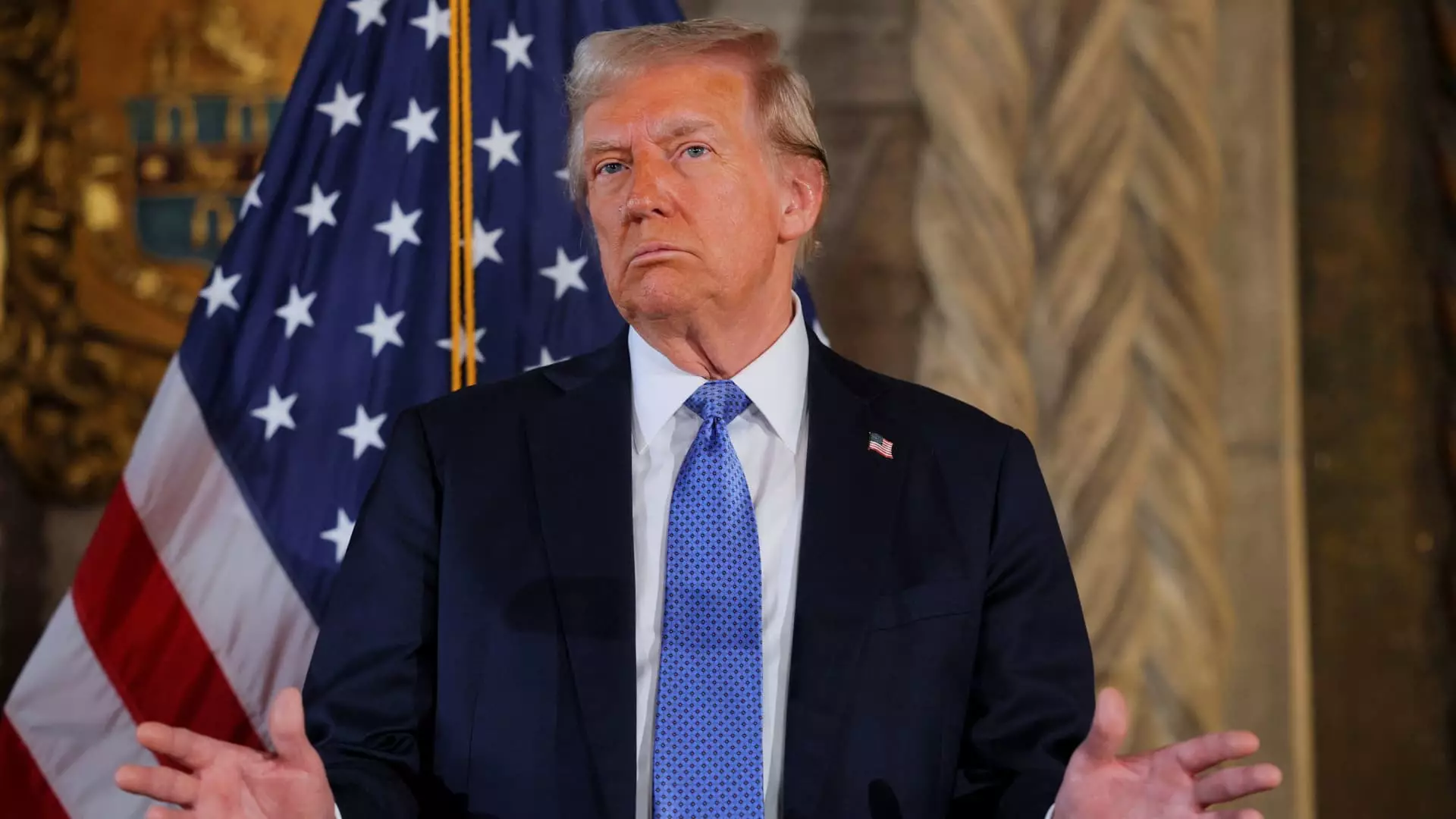In a striking early morning declaration, U.S. President-elect Donald Trump announced his stance on trade with the European Union (EU) through a post on his Truth Social platform. Trump demanded that the EU reduce its trade deficit with the United States by significantly increasing its purchases of oil and gas. He warned of potential tariffs should the EU fail to take action. This directive comes in light of a substantial trade imbalance, where the U.S. reported a goods and services trade deficit with the EU amounting to $131.3 billion in 2022. Furthermore, this ultimatum emphasizes a strategic approach that mixes energy procurement and trade tariffs, reflecting Trump’s transactional trade philosophy, intensifying uncertainties in U.S.-EU relations.
The European Union’s diplomatic reactions were mixed but demonstrated an underlying recognition of the necessity to navigate Trump’s confrontational stance pragmatically. A senior EU diplomat acknowledged the gravity of Trump’s comment but indicated that energy purchases could indeed serve as a viable avenue for addressing the trade deficit. In separate communications, German Chancellor Olaf Scholz’s discussion with Trump indicates that the EU is seriously considering its strategic options in light of Trump’s demands. The European Council’s commitment to strengthening ties with the U.S. adds a layer of complexity to the negotiation landscape, highlighting the EU’s need to balance assertiveness with cooperation.
Trump’s push for higher EU purchases of U.S. energy sources comes at a time when the EU is actively seeking alternatives to Russian liquefied natural gas. European Commission President Ursula von der Leyen recently stated that U.S. energy supplies could be cheaper and more reliable, which could provide a foundation for negotiations once Trump’s administration officially begins. However, this also raises the question of how the EU’s energy needs and economic strategies align with the pressures exerted by Trump’s trade policies, particularly in a global market where supply chains are under constant strain.
Enrico Letta’s Insights on Trade Retaliation
The geopolitical landscape becomes even more intricate with viewpoints from European leaders like Enrico Letta, former Italian Prime Minister. Letta has articulated the notion that the EU should be prepared to retaliate if Trump’s tariffs severely disrupt trade relations. He believes that correlating energy demands with tariffs on unrelated goods is misguided and underscores a misunderstanding of global trade dynamics. Letta’s insights call for a measured response to Trump’s aggressive tactics, suggesting that the EU can counteract Trump’s transactional approach by exploring financial avenues to address any enforcement measures he may impose.
As the EU contemplates enhancing its energy imports from the U.S., there remains a palpable tension surrounding the potential for tariff-induced retaliatory measures. The U.S. emerged as the largest recipient of EU goods in 2023, highlighting the interconnectedness of both economies. This relationship necessitates a careful diplomatic handling to ensure that trade discussions do not devolve into economic warfare. It becomes crucial for both parties to engage in substantive dialogue focused on mutual benefits, minimizing the risk of a trade war that could exacerbate domestic inflation and strain the transatlantic alliance further.
Trump’s ultimatum to the EU concerning energy purchases serves as a critical juncture for future U.S.-EU relations. With sizable implications for economic strategies and international collaborations, the onus now lies on European leaders to formulate a coherent response while upholding their commitments to mutual cooperation. The dance between tariffs and trade deficits, bolstered by geopolitical considerations, necessitates a nuanced understanding of both sides. As Trump prepares to take office, the world watches closely, anticipating how these trade dialogues will shape the future of transatlantic ties amidst a politically charged climate.


Leave a Reply